State or Substate?
There aren’t many Zionists anymore who oppose the existence of a Jewish state, but in the past, there were a number of them. Major Jewish figures of the 20th century, most famously Judah Magnes and Martin Buber, maintained that the Zionist movement’s essential goal, the establishment of a culturally vital and morally upright Jewish community in Palestine, could best be achieved within the framework of a binational state in which Jews neither ruled over Arabs nor were ruled by them.
These “nonstatist” Zionists, as the historian David Myers has dubbed them, have received a lot of attention in recent years, mostly from scholars who think that they were more or less on the right track. Dmitry Shumsky, a historian at the Hebrew University, is grateful for this scholarship but believes that it has not gone far enough. He wants to show that not only the outliers in the Zionist movement but some of “the most prominent representatives of the Zionist mainstream” envisioned something other than a state resembling today’s Israel as the culmination of their dreams.
Although Shumsky has written op-ed columns in Ha’aretz denouncing one or another aspect of Israeli policy toward the West Bank, supporting BDS, and calling for an end to Jewish sovereignty over the Old City of Jerusalem, he doesn’t reject the idea of a Jewish state. All he wants to see is a better sort of Jewish state.
The aspiration to transform Israel clearly lies behind the publication of Beyond the Nation-State, but it does not suffuse the book, which is focused—until the very end—exclusively on the past. Nonetheless, some of the evidence presented by Shumsky the historian seems to be tailored to substantiating the thinking of Shumsky the polemicist. And ready as he is to acknowledge the merits of previous historians whose insights happen to accord with his own, Shumsky also has an unfortunate tendency either to underestimate their achievements or to slight their work unfairly.
The main thrust of Beyond the Nation-State is to show that five of the leading figures in Zionist history for a long time aimed at constructing a Jewish community in Palestine that would either lack full sovereignty or would exercise its power only in the context of a multinational political framework.If historians of Zionism and professors of Israel studies have lost sight of this, it is because they have fallen under the sway of what Shumsky calls “methodological nation-statism,” a fallacy that has led them to understand mainstream Zionists of the past “as self-evidently committed to the goal of a sovereign, separate nation-state” like the one that exists in the present.
Shumsky begins his survey of Zionist leaders with an eye-opening study of Leon Pinsker. Herzl himself famously described Pinsker’s Auto-Emancipation (1882), when he eventually read it, as a work that anticipated everything he later had to say in The Jewish State (1896). But Shumsky shows us the Pinsker before the Pinsker of Auto-Emancipation. Shumsky demonstrates, through a review of his overlooked journalism from the 1860s, that Pinsker was at that time far from the assimilationist that historians proclaim him to have been. Analyzing what Pinsker wrote after the pogroms of 1881–1882 transformed him into a territorial nationalist, Shumsky concludes that he continued to believe that Jews who wished to do so could, in spite of everything, successfully maintain their identity as a distinctive national group within the Russian Empire. Moreover, the new alternative to life in the diaspora that Pinsker proposed in Auto-Emancipation was not a full-fledged nation-state in Palestine or elsewhere but something much less independent. Shumsky does show that Pinsker was a proponent of the rights of national minorities within multinational empires long before such ideas became widespread. But at times, he seems to arrive at stronger conclusions with regard to Pinsker’s understanding of his own identity than his evidence warrants. He tells us, for instance, that even before the pogroms Pinsker expressed his high regard for “Gabriel Rieser [sic] and Adolf Cremieux [sic], symbols of Western Jewry’s emancipatory era,” and in doing so, he combined “civil emancipatory awareness with a stand for Jewish national selfhood.” But admiration for the German Jewish leader Gabriel Riesser, who considered the Jewish nation to be defunct and regarded himself and the Jews for whose rights he fought as Germans of the Mosaic persuasion, does not imply a “stand for Jewish national selfhood.” Nor does admiration for Adolphe Crémieux, who performed great services for his fellow Jews but also had his own children baptized.
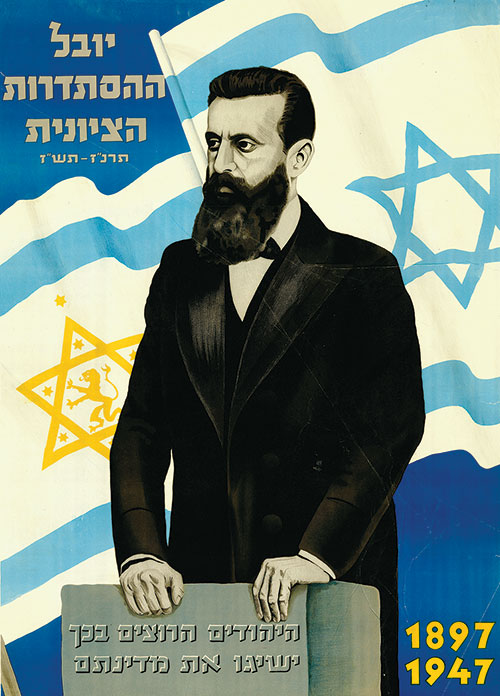
Shumsky does his fellow historians of Zionism a favor when he points out how David Blondheim’s mistranslation long ago of the term “ein suzeränes Paschalik” in the German original of Auto-Emancipation as a “sovereign Pashalik” has misled Pinsker’s English-speaking readers. It has, he says, obscured from them the fact that “Pinsker envisioned the Jews’ territorial homeland in a profoundly substatist format, either as an Ottoman pashalik (a district administered by a pasha) or as a territorium in America.” I wish, however, that Shumsky had quoted and explained the rest of the sentence, in which Pinsker specifies that the Jewish pashalik would have to be “recognized by the Porte and the other Powers as neutral.” That is, it would be within the Ottoman Empire (whose central government was known as the Hight Porte) but not exactly of it.
That Theodor Herzl depicted something other than a sovereign state as the fulfillment of Zionism in his 1902 novel Altneuland is well known, if often forgotten. But many scholars have maintained that this position should not be taken at face value. As Shumsky points out, Shlomo Avineri has claimed that “Herzl’s retreat from the sovereign nation-state model in Altneuland and toward a ‘vague sovereignty’ was . . . tactical. . . . Herzl did not want to anger the Turkish sultan by revealing his (undoubted) aspiration for full state sovereignty.” According to Shumsky, these assertions are baseless, nothing but the fallacy of methodological statism at work. And indeed, in the book Shumsky cites (Herzl), Avineri brings no evidence from either Herzl’s diary or his subsequent reflections on Altneuland that would substantiate what he says. But he does make an argument, one that Shumsky chooses to overlook.
First of all, Avineri says, the Zionist movement had since its first congress in Basel in 1897 formulated its goals in purposefully vague language that avoided challenging Turkish sovereignty over Palestine. Beyond that, Herzl often spoke of the “ambivalent” political status of Egypt in his day. “On the one hand, the land officially fell under Ottoman sovereignty, but the government of the Khedive (Viceroy) of Egypt had enjoyed broad de facto autonomy since the beginning of the nineteenth century, an autonomy that resembled independence in everything but name,” even though Egypt remained, of course, as Avineri notes, very much under the thumb of the British Empire. Similarly, “the polity depicted in the novel is a country to every intent and purpose. . . . Practically nothing remains of Turkish rule in Altneuland.”
Shumsky, for his part, believes that the relevant comparison is not with the situation in Egypt but with that in Europe, especially the Austro-Hungarian Empire, in which Herzl was born. Even in reading The Jewish State, he concludes, “it is incumbent upon us to be mindful of a certain fact that most historical discussions of Herzl’s text have ignored, namely, that the conventional, assumed meaning of the term ‘state’ in the immediate (multi)national context in which Herzl was raised and lived referred to an autonomous district and not a sovereign nation-state.” To that, I would say—not so fast!
Nathan Birnbaum, the man who invented the term “Zionism,” studied at the same university as Herzl and moved in a similar intellectual milieu. Yet he called on the floor of the first Zionist congress for the establishment of a Jewish state that would be fully sovereign, like the “many small nation-states” that had arisen in recent decades. He was referring, as Michael J. Reimer has observed, to “Montenegro, Serbia, Romania, and Bulgaria.” And beyond this, what does Shumsky make of the fact that Herzl’s Judenstaat possesses an army of its own?
Shumsky’s main concern, however, is with Alt- neuland. But before turning to the question of the political status of Herzl’s imagined utopia, he discusses Herzl’s hope that a European-style, hybrid Jewish identity could be preserved there, along with a strong connection to the culture of the Enlightenment. Among other things, he highlights a February 1896 diary entry in which Herzl writes: [M]any Zionists [are] in favor of Hebrew. I think . . . [if] we establish a neo-He- brew state it will be only a new Greece. But if we do not close ourselves o in a linguistic ghetto, the whole world will be ours.”
That Ahad Ha’am, as Shumsky maintains, was ready to settle for something less than a sovereign state is sufficiently well known. Vladimir Jabotinsky, the nationalist maximalist, on the other hand, might seem to be the figure least likely to appear in Shumsky’s table of contents. But he is, in fact, someone whose Zionist thought always moved “beyond the nation-state.” From the time of his youthful Zionist activism in tsarist Russia to his death in 1940, Jabotinsky was a consistent advocate of what he termed, borrowing a phrase (along with much else) from the Austro-Hungarian Marxist Karl Renner, a “nationalities state” (Nationalitätenstaat). Whether he was focused on the status of the Jews in the Russian or Ottoman Empire or defining the place of non-Jewish ethnic groups in a future Jewish state, Jabotinsky always upheld the right of national minorities to a maximum degree of national autonomy within a loose overall framework.
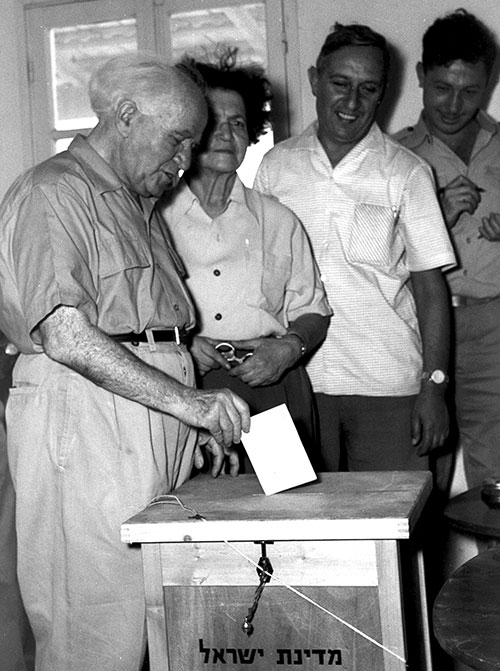
As Shumsky observes, “Jabotinsky offers the clearest and most precise articulation of his Jewish nationalities state in his last book, The Jewish War Front, published in 1940.” The Jewish character of this state is due exclusively to the fact that most of its citizens would be Jewish.
The Jabotinskian Jewish state is actually two states in one: the Jewish entity and the Arab entity are described as political bodies in every sense of the term, even going so far as to include a legislative and executive branch for each of them. The only practical role for the broader political framework was to serve as a coordinating mechanism, “organizational and not territorial.”
One might be tempted to dismiss all of this as mere window dressing, deceptive words thrown out by an integral nationalist unable to flex the muscles of a Jewish majority that was still in the planning stages. Wary of anyone coming close to such a conclusion, Shumsky takes to task a man he describes as “a key scholar of Jabotinskian political thought,” the Israeli scholar Aryeh Naor. He accuses him of arguing that the constitutional outline in The Jewish War Front was “a tactical move” taken to persuade“British and American readers of the need to establish ‘a Jewish army’ that would join the Allies, and to add the establishment of a Jewish state to the list of the Allies’ war goals.”
While acknowledging that Naor has a better understanding of Jabotinsky’s political thought than most of his peers, Shumsky also berates him for concluding “his comprehensive article on Jabotinsky’s constitutional outline for the Jewish state by presenting his political thought as a kind of early blueprint for the contemporary state of Israel.” According to Shumsky, Naor, like Avineri, is guilty of believing that Zionist thought in the pre-State period revolved “around some imagined deterministic axis whose foregone conclusion is the Jewish nation-state.”
In fact, Naor is not guilty as charged. While he maintains that the publication of The Jewish War Front “fit[s] in with” Jabotinsky’s wartime aims, he does not understand the book wholly or even primarily in that light. Naor—the nephew of Irgun leader David Raziel as well as the former press secretary of Prime Minister Menachem Begin—is just as emphatic about the genuineness of Jabotinsky’s political principles as Shumsky is. This is indeed reflected in what Shumsky regards as the lamentable conclusion of his lengthy article. There Naor quotes at length from the Israeli Supreme Court’s controversial Ka’adan case (2000) words that reaffirm “the equal rights of every person in Israel, regardless of their religion or nationality.” He then says that “these words could also be an essential summary of the principles underlying Jabotinsky’s constitutional outline for the State of Israel.” Shumsky would have preferred it, I suppose, if Naor had written something like the “constitutional outline of a predominantly Jewish but also multinational state.” But it would have made no difference in his understanding of Jabotinsky’s ideas.
With regard to constitutional plans for the future Jewish state, David Ben-Gurion was more like Jabotinsky’s twin than his archrival for quite some time. He didn’t share Jabotinsky’s past as an advocate of Jewish national autonomy in the Russian Empire, but before World War I, he supported the integration of a Zionist substate into the Ottoman Empire. And during the early years of the British Mandate, he “argued that Zionism must work toward an equitable model of joint binational sovereignty in Palestine, and to do so as a matter of principle.” As Shumsky observes, “[T]his was the antithesis of the ‘national state’ view in its entirety, regardless of whether the proposed state would be Jewish or Arab.”
Shumsky considers but then rejects the idea that Ben-Gurion’s position was just tactical. He also traces the path that Ben-Gurion took away from binationalism in the direction of the nation-state in the aftermath of the 1936 Arab Rebellion, the 1937 Partition Plan, and, above all, the Nazi genocide. The Holocaust represented for Ben-Gurion the violation of an “unwritten contract between the Jews and the world’s nations—not dominating the collective personality of Jews in the diaspora in exchange for not dominating the collective personality of Arabs in Palestine.” He believed that the Holocaust voided this contract and that the Jews were consequently entitled to “a state that would express the Jewish national identity alone.” That is to say, it would be a state that would have “no room for incorporating the national identities of the Palestine-Arab national collective.”
Dmitry Shumsky’s Beyond the Nation-State is marked by many forced and unsatisfying readings of both original sources and other scholars’ work, some of which make his argument seem stronger than it really is, while others make the work of his colleagues seem weaker. Nonetheless, he shows that some central Zionist thinkers and activists in the period prior to the establishment of the State of Israel—even if not as many as he says—envisioned a future in which Zionism’s main aims would be achieved without a Jewish nation-state like the one we have today. His arguments that Leon Pinsker and Theodor Herzl aspired to a Zionist substate that would be subordinate to some larger empire all seem rather dubious to me, but his treatments of both Vladimir Jabotinsky and David Ben-Gurion are more convincing. As he writes, “Zionism’s most prominent leaders hardly imagined the Jewish nation’s political future in Palestine without it existing alongside an Arab national collective with collective rights under one joint political framework.” And they didn’t just take this position for tactical reasons; they really meant it.
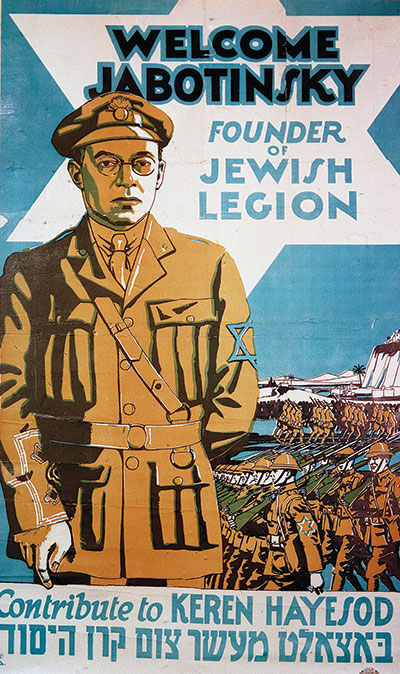
Unlike some other recent writers about nonstatist Zionism, Shumsky does not wish to revert to a plan for a binational state encompassing all of Mandate Palestine. Under current circumstances, “we may conclude that Israel’s political consciousness would do well to embrace the notion of the division of the Land of Israel/Palestine into two nation-states.”
This does not mean, however, that Shumsky believes his work is devoid of practical ramifications. For even if the two-state solution somehow comes to fruition, he writes, “we may assume that the repressed memories of the binational political conceptions advocated by political Zionism in the past will not be consigned to the garbage bin of history. On the contrary, they are likely to resurface, if only because within the state of Israel itself two national collectives—the Jewish and the Arab-Palestinian citizens of Israel—continue to live side by side.”
This is not the wishful thinking of an academic; it’s the prognostication of an influential pundit. By brandishing the authentic Zionist pedigree of currently unpopular political ideas in Beyond the Nation-State, Shumsky seeks to strengthen them in a future where Israel will be reduced, he hopes, to what he sees as its proper dimensions.
As Shumsky observes in his last paragraph, ideas that “closely resemble the prestate Zionist notions of Nationalitätenstaat, are nowadays articulated primarily by the representatives of Israel’s Palestinian-Arab citizens.” He notes the irony of this fact but leaves unstated his obvious hope that more Israeli Jews will come to agree that Israel’s Palestinian-Arab citizens should be allotted a greater degree of autonomy. Whether this is likely or desirable is a question that Beyond the Nation-State does not address.
Comments
You must log in to comment Log In
Suggested Reading
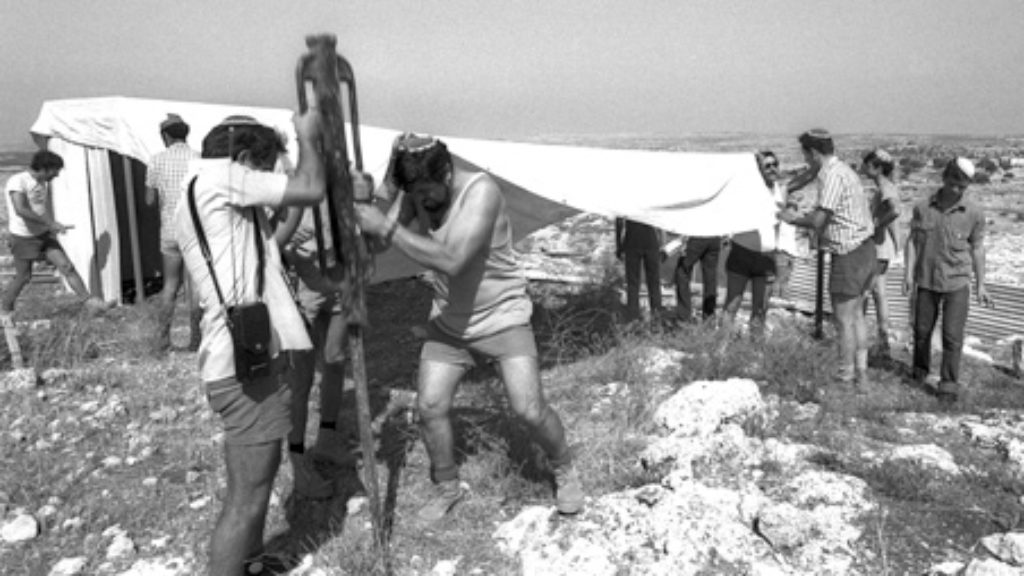
Adventure Story
Anita Shapira's new book raises the bar for short histories of Israel.

From Russia with Complications
In what ways is the Israel of the Russian aliyah an extension of the old and new Russia, and to the degree that it is, does this constitute a problem? A valuable report on the present state of affairs.
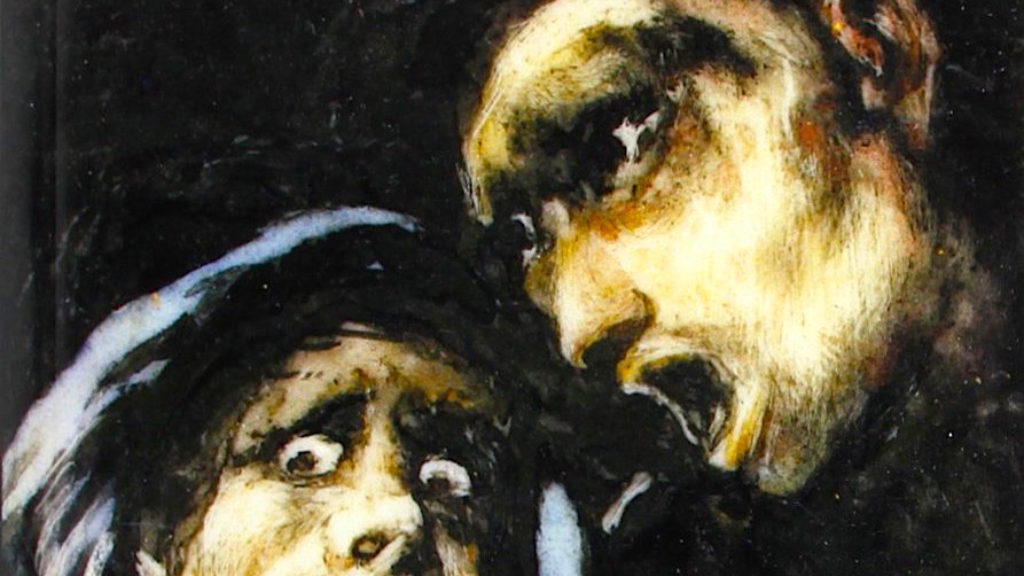
The 2,000-Year-Old Women
Michael Weingrad discusses how two of the most highly praised novels of 2018, Dara Horn’s Eternal Life and Sarah Perry’s Melmoth, feature a Jewish woman born in ancient Judea who still walks the earth today.
Category Error
What is lost when the books of the Hebrew Bible are read as philosophy?
Yishai Jusidman
Does it ever occur to activist historians like Mr Shumsky to consider the Arab's historical categorical rejection of bi-nationalism in Palestine? You can't have a binational state if one of the "nations" in question will not even imagine that possibility. If we can take any lesson from the factual history of Zionism, as opposed to its wishful history, is that if the Yishuv had not been fully prepared to become a nation-state by 1948 there would be no Israel to speak of—wether national, binational, multinational or whatever. Palestine would likely be Judenrein by now, as Arab leaders have declared time and again. Or maybe that has been merely a "tactical" position? Would anyone like to test that? (I guess Rabin and Peres did, but it hasn't turned out that well, has it?)
[email protected]
ZIONIST NONSTATISTS
Of every early Zionist nonstatist
Martin Buber surely was the very greatest,
though this opinion made him in my view a loony,
like Judah Magnes, founder of the Hebrew Uni,
and contemporary H. Uni anti-Zios,
agsinst whom unashamedly I show a bias.
Many friends think my political reaction
needs therapy that's radical, like red redaction.